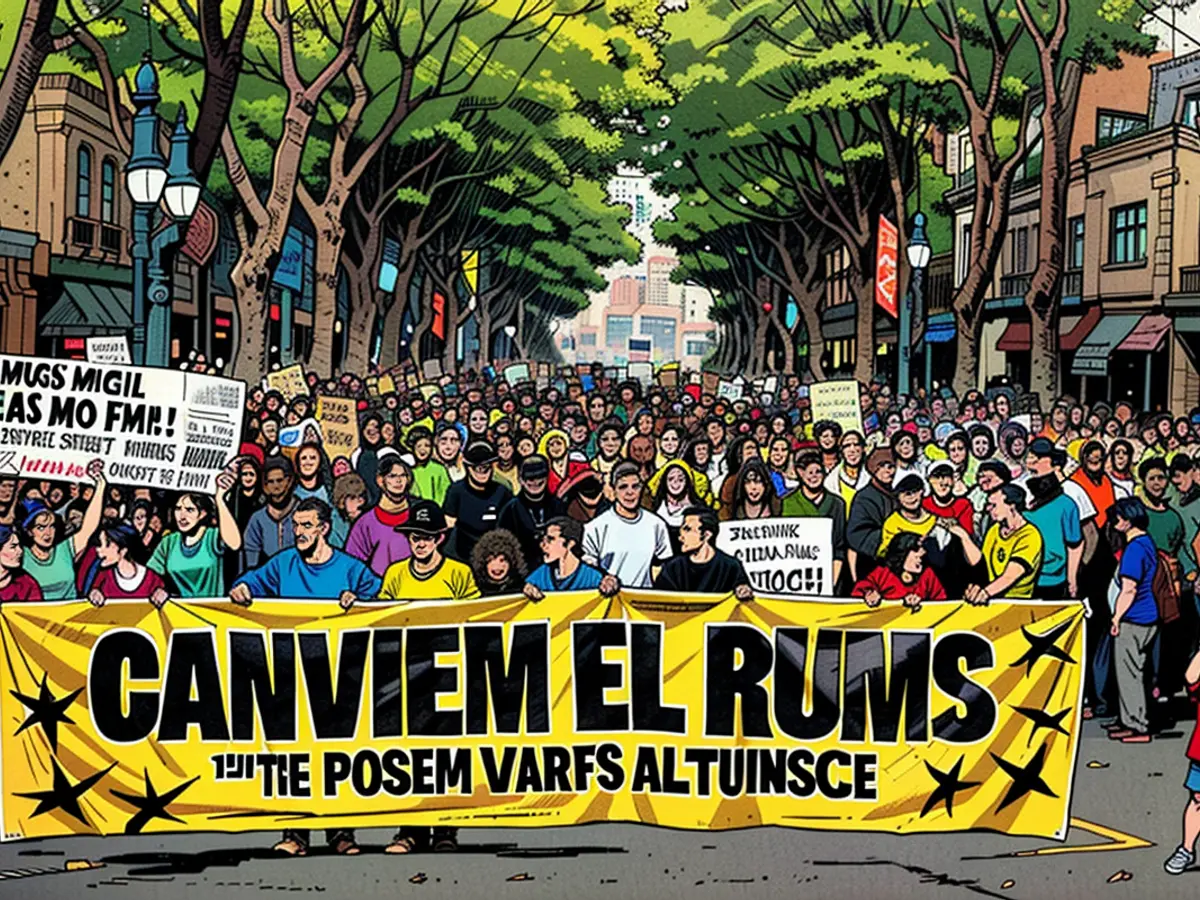Mallorca will maintain its mass tourism status
In Mallorca, thousands of people have been protesting against mass tourism on the streets for some time. Now, the Balearic Regional Government promises to address the concerns of the island residents. "Bold measures" are expected to be implemented in a few months.
After the latest anti-mass tourism protest in Mallorca, the Balearic Regional Government promises the disgruntled citizens "bold measures." These will be implemented "within a few months," assured Vice President Antoni Costa before journalists in Palma. "We understand the concerns of society," Costa stated. One must "set limits," as the growth model is "unsustainable."
The Hoteliers Federation FEHM also expressed understanding for the demands of the demonstrators. "We focus more on quality than quantity," said the Vice President of the Organization, María José Aguiló. However, she criticized the aggressive behavior of some demonstrators, who had sprayed water on tourists. She also denounced graffiti on hotels and other tourist facilities.
The police estimated the number of protest participants on Sunday evening at 20,000. The organizers spoke of 50,000, which was considered too high by on-site observers. People held signs with slogans like "Your luxury, our misery" or "We don't want to be the pioneers of rising living costs." A sign criticized budget airlines.
Unrest also in Barcelona
Some tourists in Palma even clapped in support. Others found the demonstration rather unpleasant, it was reported. The group "Less Tourism, More Life" called for this. Eight weeks ago, up to 25,000 people had demonstrated in Palma under the slogans "Say no!" and "Mallorca is not for sale!" Similar unrest was reported in other Spanish tourist metropolises like Barcelona and the Canary Islands.
On the Balearic Islands, where Mallorca is the main island, about 1.2 million residents live. In the past year, they were visited by 18 million tourists, of whom 4.6 million were from Germany and 3.4 million from the United Kingdom. There were approximately 15 tourists for every resident.
Tourism is vital for Mallorca. The industry accounts for 45% of the island's economic output. However, demonstrators complain that only a minority benefits, while the majority in the sector receives low wages that do not cover the increasingly expensive housing. Additionally, traffic jams, noise, and dirt irritate the islanders.
Following the escalated protests against mass tourism in Mallorca, international attention has been drawn to the Balearic Regional Government's response. Recognizing the "unsustainable" growth model, they have pledged to implement "bold measures" aimed at addressing the concerns of the local population within a few months.
On a global scale, the International Tourism Organization (ITO) has expressed concern over the ongoing demonstrations in popular Spanish tourist destinations such as Mallorca, Barcelona, and the Canary Islands. These protests highlight the growing tension between the tourism industry's economic benefits and the negative impacts on local communities and environments.






